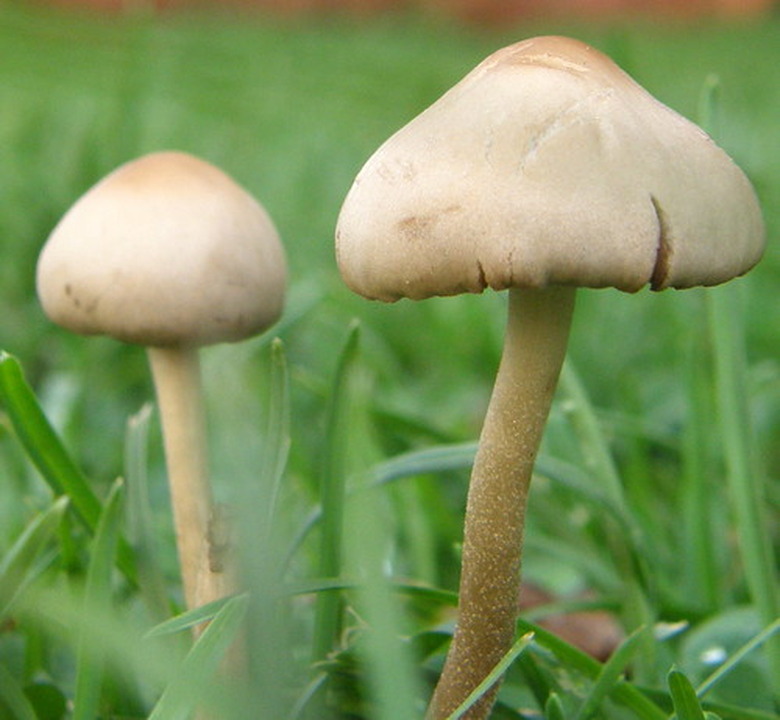Parts Of A Fungus
Fungi are unique organisms with body structures and reproductive modes unlike those of any other organism. Mushrooms, mold and certain parasites are all fungi. The key features of a fungal body are the mycelium (made up of hyphae), the fruiting body and the spores.
Features
Features
Many fungi look like plants, but fungi are heterotrophs, like animals. A fungus must digest food to live, while plants are autotrophs that make their own food through photosynthesis.
Mycelium
Mycelium
A fungal mycelium is a network of threadlike filaments called hyphae. The mycelium obtains nutrients (usually from decaying organic matter) and produces the fruiting body. Often the bulk of the mycelium will be underground. According to the 2009 text "Biology: Concepts and Connections," the mycelium of one giant fungus growing in Oregon covers more than 2,200 acres of forest.
Fruiting Body
Fruiting Body
The fruiting body of a fungus is a reproductive structure. A mushroom is a typical fungal fruiting body, attached to a mycelium underground. A fruiting body produces spores.
Spores
Spores
Spores are involved in fungal reproduction. Released by the fruiting body, fungal spores are haploid, meaning they carry only one chromosome for each gene (like human gametes). Spores can germinate when they strike damp soil.
Considerations
Considerations
Unlike animals, fungi don't digest food internally. Instead, they secrete digestive enzymes so that their food is "digested" outside their bodies. A fungus then acquires its nutrients by absorption of the digested food through the mycelium.
References
- Biology: Concepts and Connections; Neil A. Campbell; 2009
- Fruiting Bodies
Cite This Article
MLA
Veloz, Liz. "Parts Of A Fungus" sciencing.com, https://www.sciencing.com/parts-fungus-5640132/. 22 November 2019.
APA
Veloz, Liz. (2019, November 22). Parts Of A Fungus. sciencing.com. Retrieved from https://www.sciencing.com/parts-fungus-5640132/
Chicago
Veloz, Liz. Parts Of A Fungus last modified March 24, 2022. https://www.sciencing.com/parts-fungus-5640132/
